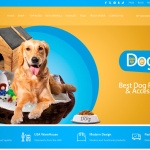How to Kickstart Your Online Business Journey: Beginner Ecommerce Tips
- October 13, 2024
- Ecommerce

How to Kickstart Your Online Business Journey: Beginner Ecommerce Tips. Starting an online business can be an exciting and rewarding venture. With the rise of e-commerce platforms and digital marketing tools, the barriers to entry for aspiring entrepreneurs have never been lower. However, navigating the world of online business can still be overwhelming for beginners. From setting up your website to marketing your products, there are a lot of factors to consider when kickstarting your online business journey. In this article, we will provide beginner e-commerce tips to help you get started on the right foot.
1. Understand Your Niche
Before you start your online business, it's crucial to have a clear understanding of your target market and niche. Research the current market trends and competition to identify a unique product or service that you can offer. By focusing on a specific niche, you can differentiate yourself from competitors and attract a loyal customer base.
2. Choose the Right E-Commerce Platform
When starting an online business, choosing the right e-commerce platform is essential. Platforms like Shopify, WooCommerce, and BigCommerce offer user-friendly interfaces and robust features to help you build and manage your online store. Consider factors like pricing, customization options, and integration capabilities when selecting the best platform for your business.
3. Design a User-Friendly Website
Your website is the online storefront of your business, so it's important to create a visually appealing and user-friendly design. Make sure to use high-quality images, clear navigation menus, and responsive design to enhance the user experience. Consider hiring a professional web designer to help you create a professional-looking website that aligns with your brand identity.
4. Develop a Strong Brand Identity
Building a strong brand identity is essential for establishing credibility and trust with your target audience. Create a memorable logo, choose a consistent color palette, and develop a unique brand voice that resonates with your customers. By establishing a strong brand identity, you can differentiate yourself from competitors and build brand loyalty over time.
5. Implement Effective Digital Marketing Strategies
Digital marketing is essential for driving traffic to your website and generating sales for your online business. Consider leveraging techniques like search engine optimization (SEO), social media marketing, email marketing, and pay-per-click (PPC) advertising to reach your target audience. Develop a digital marketing strategy that aligns with your business goals and budget to maximize your online visibility.

How to Kickstart Your Online Business Journey: Beginner Ecommerce Tips
6. Provide Excellent Customer Service
Customer service is a critical aspect of running a successful online business. Make sure to respond promptly to customer inquiries, address any issues or concerns promptly, and provide a seamless shopping experience for your customers. By prioritizing customer service, you can build trust with your customers and encourage repeat purchases.
7. Monitor Your Performance and Analytics
Monitoring your website performance and analytics is essential for optimizing your online business and achieving your goals. Use tools like Google Analytics to track key performance indicators like website traffic, conversion rates, and customer behavior. Analyze your data regularly to identify areas for improvement and make informed decisions to grow your online business.
8. Stay Up-to-Date with Industry Trends
The e-commerce landscape is constantly evolving, so it's important to stay up-to-date with industry trends and best practices. Subscribe to industry newsletters, attend webinars, and network with other online business owners to stay informed about the latest developments in e-commerce. By staying ahead of the curve, you can adapt to changing consumer preferences and maintain a competitive edge in the market.
Frequently Asked Questions (FAQs)
1. How much does it cost to start an online business?
The cost of starting an online business can vary depending on the size and scope of your venture. You can expect to spend money on things like website hosting, domain registration, e-commerce platform fees, digital marketing, and inventory. Consider creating a budget to estimate your startup costs and allocate funds accordingly.
2. Do I need to have technical skills to start an online business?
While having technical skills can be helpful when starting an online business, it's not a requirement. Many e-commerce platforms offer user-friendly interfaces and tools that make it easy for beginners to set up and manage their online stores. Consider taking online courses or hiring a web developer to help you with any technical aspects of your business.
3. How long does it take to see results from my online business?
The timeline for seeing results from your online business can vary depending on various factors like your niche, marketing strategy, and competition. In general, it can take several months to a year to start seeing significant sales and growth in your online business. Be patient and consistent with your efforts, and continue to refine your strategies based on data and feedback.
4. How can I attract customers to my online store?
There are several ways to attract customers to your online store, such as search engine optimization (SEO), social media marketing, email marketing, and influencer partnerships. Consider collaborating with influencers in your niche, running targeted ads on social media, and optimizing your website for search engines to drive traffic to your online store. Experiment with different marketing tactics to see what works best for your business.
5. How can I differentiate myself from competitors in my niche?
To differentiate yourself from competitors in your niche, focus on offering a unique value proposition, exceptional customer service, and high-quality products or services. Consider conducting market research to identify gaps in the market and develop a unique selling point that sets you apart from competitors. By providing a unique and compelling offering, you can attract and retain customers in a competitive e-commerce landscape.
In conclusion.
Starting an online business can be a challenging yet rewarding endeavor for beginners. By following these beginner e-commerce tips and frequently asked questions, you can kickstart your online business journey with confidence and set yourself up for success. Remember to stay focused, be patient, and continuously adapt to changing market trends to grow your online business over time.
Mobile Marketing for Ecommerce Apps
Maximizing Your Ecommerce Website’s Potential. Strategies for Success
Why Dropshipping is a Low-Risk Way to Start an Online Business












